Chamber Music for Novice-level Players
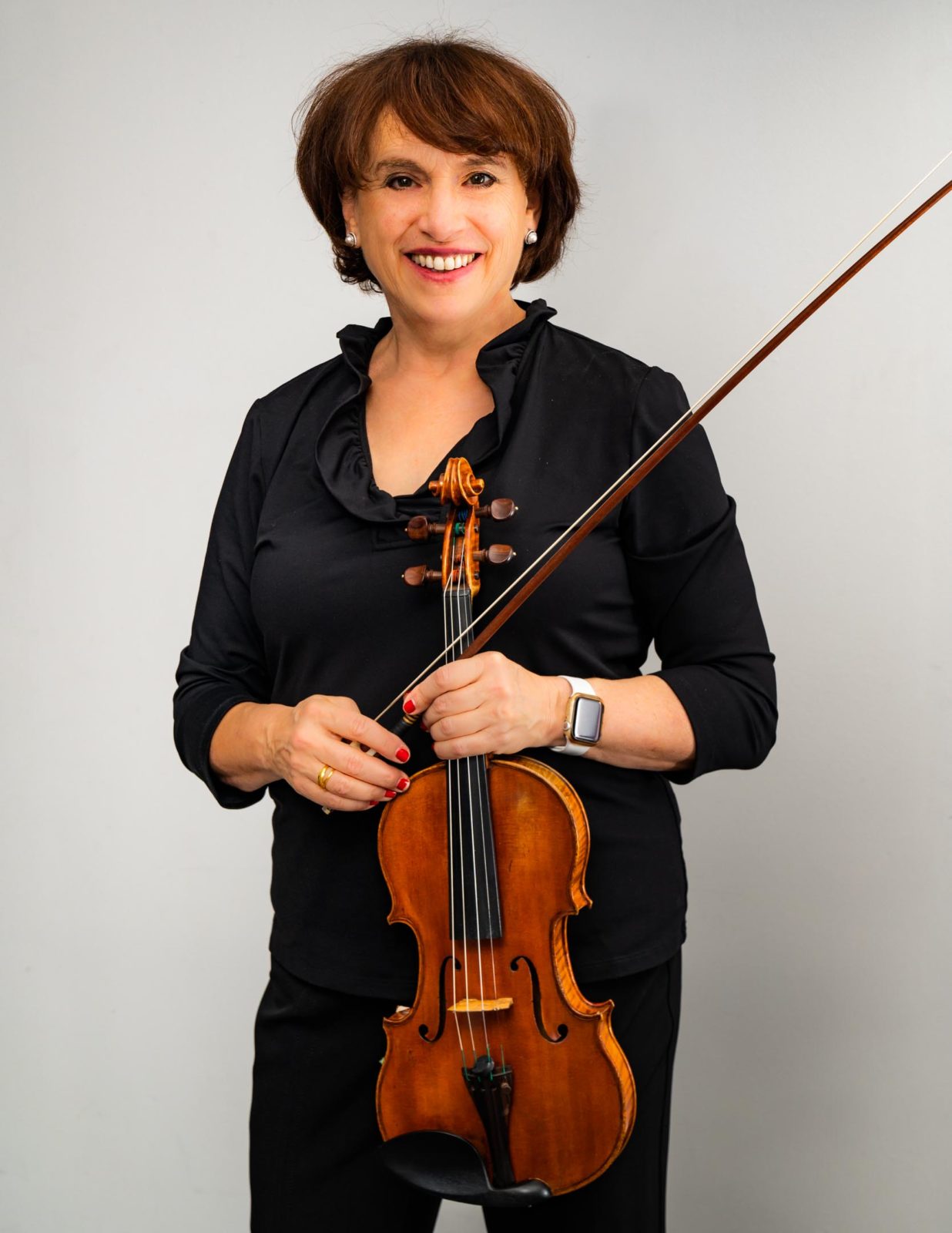
If you are a late-starter or emerging chamber music player, I want to welcome you to the world of chamber music. I hope your journey will be filled with new friends, lots of fun, learning, and beautiful music. Chamber music is something you can do for many years and you will never run out of music to play and things to learn.
But where would you find music that would be at a level good for you? How can you make that assessment?
Often you can assess your skill level by the number of major and minor scales and arpeggios you can play in different keys and the number of octaves you have mastered. Rhythmic knowledge may be determined by your ability to play in different meters. State school music lists ( in New York this would be the NYSSMA list) also rank sight-reading by rhythmic ability and knowledge. This can be a great tool for your to determine the level of piece you can handle.
This article is meant to give you some helpful hints and provide some terrific titles for you to try. At the end I will provide a very brief list of some titles that will be successful, but it’s just a taste of what might be hundreds of works. Remember too, that you can find any combination of instrument grouping ( 3 cellos anyone?) so you can always find something for the players that may be available to you.
Where to find music?
If you haven’t heard about IMSLP, it is a terrific first place to check for music. I really don’t know what IMSLP stands for but I’ve always thought “I am such a lucky person” would be good. Here you will find hundreds of pieces to download for free. You will have to ignore the ad at the top and, if you are using the free version, you will have to wait a few seconds before you can download the music. You can also pay for this service ( it’s inexpensive) and you won’t have to wait to download items. It is challenging to navigate this site at first. I’ve discovered that the easiest way for me to find music has been to type what I want in a google search followed by IMSLP. It usually pops right up.
One good place to start on IMSLP is to type in “string quartet albums IMSLP” . These are collections of string quartet movements that have been put together to be playable by intermediate players. The collections feature different composers so you’ll get a good mix of styles.
When you get tired of “the standard” pieces that you might encounter in a chamber music situation or from other players, this site has hundreds of pieces that you’ve never heard of! They give a brief description of the work, its instrumentation, and often a technical level. Look for the ones that are listed as technically easy. You might start first with composers who have also written student string methods in the 1800’s. They would have been tuned into the needs of emerging students as well as polished players. Names like Lachner, Maza, Rode, DeBeriot spring to mind. These will all be tuneful and fit string technique beautifully. After you find something you think you might like, see if you can find it on Youtube and take a listen. After that, you can check IMSLP since all these pieces will be outside of the public domain before you purchase.
Every person has different talents and I think we should all be grateful that there was someone in the world who had the patience and brainpower to put together this guide. Not only has the author listed hundreds of pieces, but he lists the difficulty of each instrument in the group. For example, there might be a string quartet where all the parts are rated of equal difficulty, or ones where the first violin is more difficult than the other parts etc. You can order it from SJ Music in the United Kingdom for £17.95 plus shipping and handling.
Sheet Music Plus also has lots of free downloads, and easy contemporary music if you are so inclined – and don’t be shy! If there is a title you want for a pop piece that is not written for your instrument, get an easy piano version with a treble and bass clef part ( sorry violas) as see if you can make it work. Sheet music plus also has a transposition feature so if there’s something you want in a different ( easier) key it’s easy to obtain.
JW Pepper – I know this is mostly orchestral but there are so many good titles here that I had to include it. Since most of these pieces are written for student level string players, you will find many to enjoy that are fun to play, including outstanding arrangements of technically challenging pieces that otherwise would be too difficult to enjoy. Moreover, the pieces are recorded so you can hear them being played before a purchase. This is sometimes an expensive option since you might have to purchase a set of multiple parts ( although they often list individual parts and an extra score for separate purchase). But read below ….. There is a secret!
Your local middle and high school music teacher will already own tons of titles. They will be delighted to help you in any way they can. They may be able to let you borrow music and make suggestions from their library. School music teachers are a great resource for you in your community. They can be a great resource for you.
Graded Lists-
Each state has a school music association that produces a graded list of repertoire, including chamber music repertoire. Sometimes you need to purchase these lists ( if you get them without the fancy binder, they are not expensive) and with luck you can find them posted by a music store in the hopes that you will purchase the pieces from them. Hickeys Music is one such place for New York, but I’m sure there are others.
These lists also include sight reading levels. Checking them for your rhythmic knowledge is a great way to establish the level of the pieces you can handle.
An important caveat for all your pieces! Make sure that whatever piece you select also has a score. (That is all the parts printed together). This will make everything from rehearsing to locating a section if someone gets lost so much easier! Also, try to find music where the measures are numbered or at least have rehearsal letters. This will save you an infinite amount of time and frustration when trying to find your way in a rehearsal or reading session.
Often you can hear a piece being played on YouTube and see the score scrolling by. This is a huge help to jump start your understanding of the piece, and the entrances of each instrument.
I realize that we all have the option to download music onto iPads for many reasons. There are services that, for a fee, will open up entire libraries of music to you. Henle Library is one. Just remember that you will only have access to your part and that your other players will have to supply their own. You are also only “renting” it in a sense, so you will not be able to print it out. You can often find used copies on sites like eBay or libraries like the Performing Arts Library at Lincoln Center in New York or the Philadelphia Free Library in Pennsylvania.
Technical Considerations–
When selecting a piece to play as a string player there are certainly things to keep in mind that will help maximize your enjoyment and minimize frustration.
Often emerging string players are afraid of higher positions so seek out music with a limited range. This is sometimes helpful, but a much more important consideration is to scan the music for the type of string crossings involved. Lots of quick arpeggiated figures, or repetitive slurs over strings that require steady rhythm for many measures are difficult. String instruments are singers! The more melodic for all instruments, the better.
Keys – The easiest keys for string players are C G, D for cello and viola and A for violin ( and their relative minors) because these allow us to use many open strings. If you are playing with winds, then F or B flat are good options. If you are playing with piano, look for piano parts that don’t jump around too much.
Rhythm – Anything with extended use of syncopation will require rehearsal and will not be easy to sight read. Off the beat entrances are also tricky, especially for an emerging player with limited experience in how to handle them. Look for any hooked bowings to make sure you have an idea of how these are managed. Rhythm challenges shouldn’t be a total deterrent, but it’s something to keep in mind when trying to assess difficulty.
Intonation –
Intonation is more demanding from an ensemble of only two players than from an ensemble of three or more.
In chamber music including piano, often the pianist will need to be at a more advanced level than the other players. That said, playing with piano adds rhythmic stability and helps with intonation since it is fixed on the piano.
Intonation is more demanding from an ensemble of only two players than from an ensemble of three or more. In chamber music including piano, often the pianist will need to be at a more advanced level than the other players.
Forms –
All music that you will play exists in established forms and there are two that are really tricky and might not be your best bet for an easy, enjoyable reading session.
The first would be a Gavotte. Gavottes are a dance form in two beats per measure where the melody starts on the second half of the measure. Ouch! For the longest time you will want the melody that you play or that you hear others in the group play as starting on the first beat. That is what makes this such a difficult thing to keep together. Not all Gavottes are titled “Gavotte” but they will still follow this form. Again, this shouldn’t deter you from a delightful Gavotte, but it will inform you that there will be this difficulty.
Fugues are characterized by a melody that is also a harmony and this melody will start at different places for each instrument. These are not great sight reading choices for emerging players because once one person gets out, it’s not possible to get back in, since the fugue theme can start anywhere and follow anyone. Fugues are often the last movement of a piece or may exist as a section within a longer movement ( usually towards the end of the movement).
My favorite form for emerging players would be the Rondo. The melodic form of a Rondo is A B A C A D etc. As you can see the A section will come back over and again. This gives the group a guidepost to aim for no matter what has transpired in between. Also, since it’s repeated throughout the movement, players really get a chance to learn it. Rondos are often the middle or last movements of a piece.
I thought of adding a list of pieces here but there are too many categories and too many different instrument groupings for this to be practical. Still, here are a few ideas to get you going.
Trios
Baroque – Telemann – type in “Telemann trios IMSLP” and take your pick. They will all be playable and fun.
Rocherolle – Trios for Intermediate pianists
String Quartet
Mozart “Band Two” string quartets – This collection has 16 string quartets ( starting with k156) that are all lovely. This is something you will want to own.
Haydn – op 20 There are 5 of these and they vary in difficulty but are all worth the effort.
Piano Quintets
Elfira Andree – Piano quintet
I hope this encourages you all to begin a wonderful journey with chamber music.
Jill Schultz Ed.D. is a violinist/educator whose workshops called Skills and Drills is designed to help late starter and emerging string players enter and enjoy the world of chamber music.
More Articles
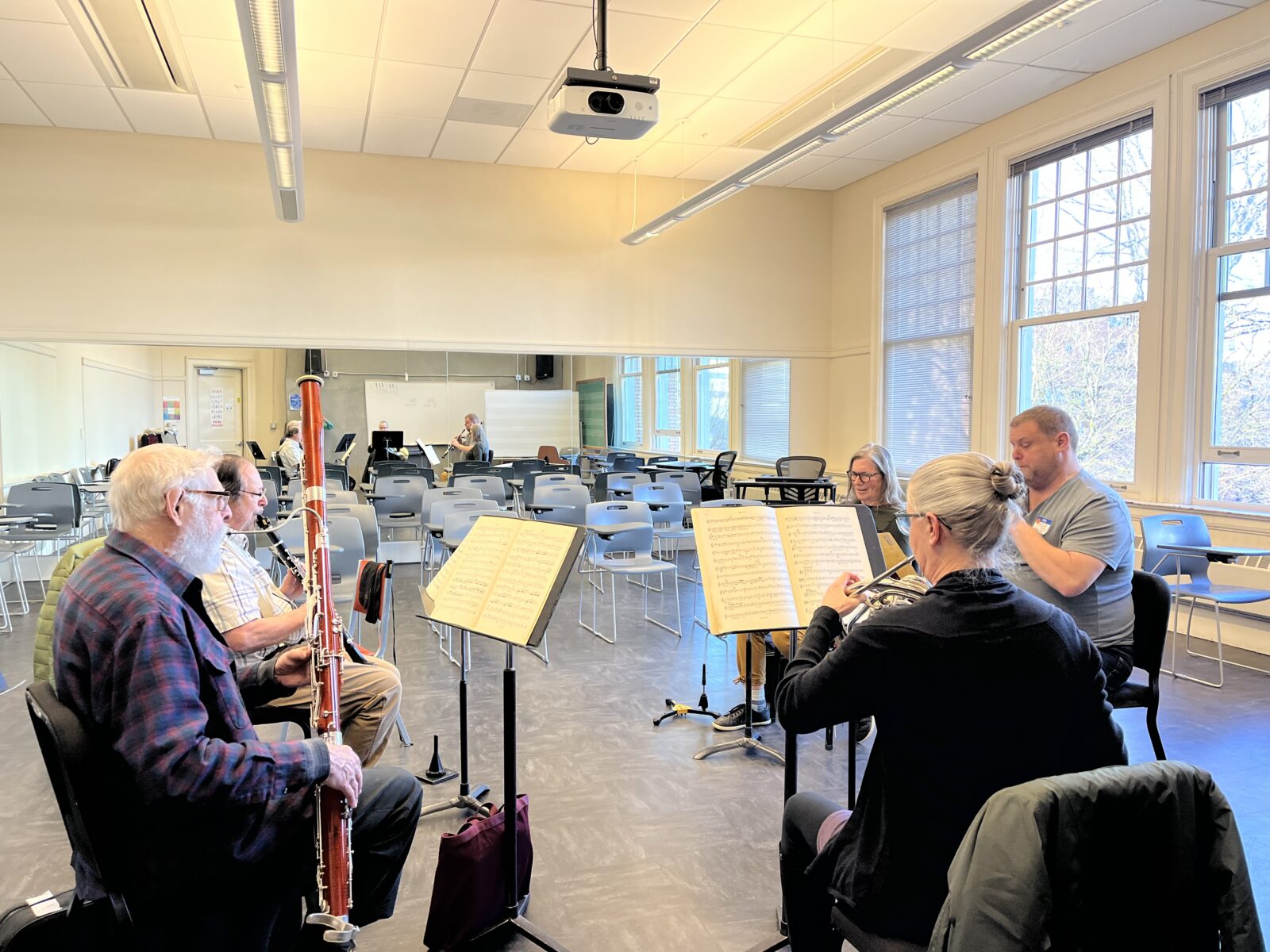
The Oregon-Washington ACMP Play-In
On January 17, 2026, 45 chamber musicians, ages 23-80, met at Portland State University's Music School Hall in Portland, Oregon for a Play-In organized by NAOC councilor Virginia Feldman.Read More ↗
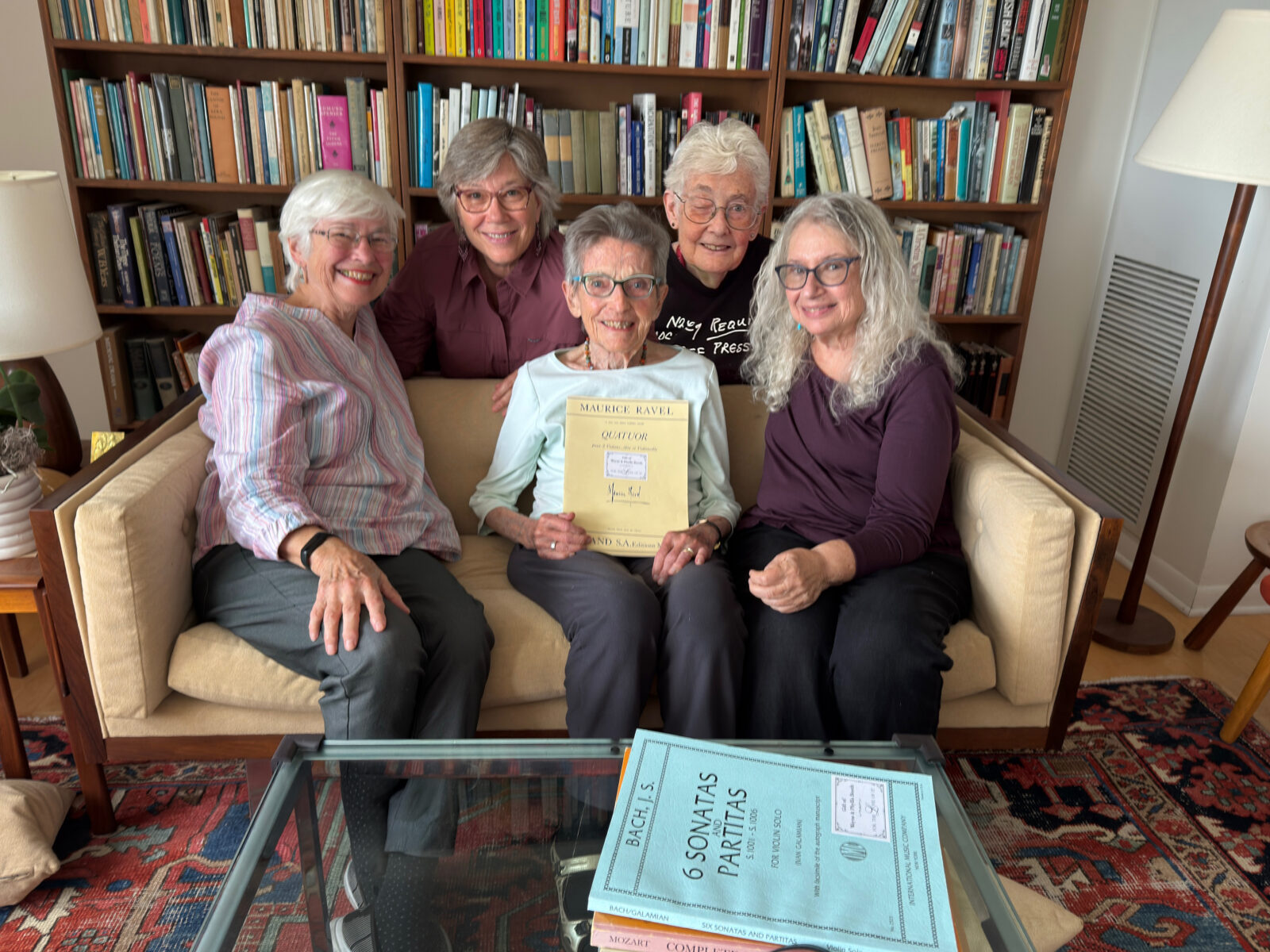
For the Love of It: A Legacy
What to do with all that music, when you finally, reluctantly, stop playing? At 99, Phyllis Booth decided to gift her collection to Golden Chamber Music at Sleepy Hollow, where she and her late husband Wayne Booth had a long, joyful connection since shortly after its founding in 1969.Read More ↗
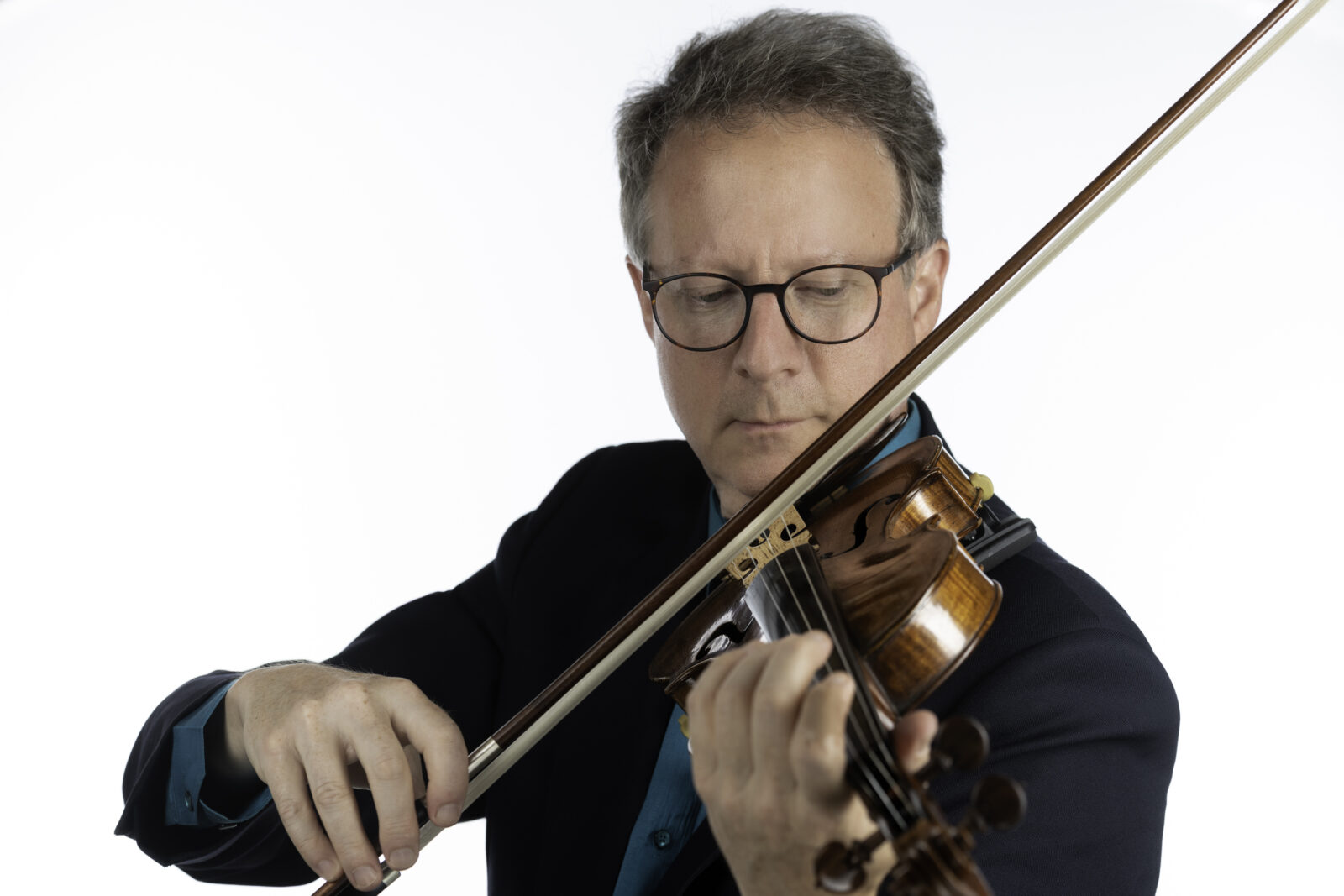
Everything you always wanted to know about bows but were afraid to ask
Join Gabriel Schaff - violinist, scholar and author of "The Essential Guide to Bows of the Violin Family" for an illuminating journey through the history of the bow to everyday tips (no pun intended) about caring for your bow, choosing a new one - and....everything you always wanted to know but were afraid to ask!Read More ↗
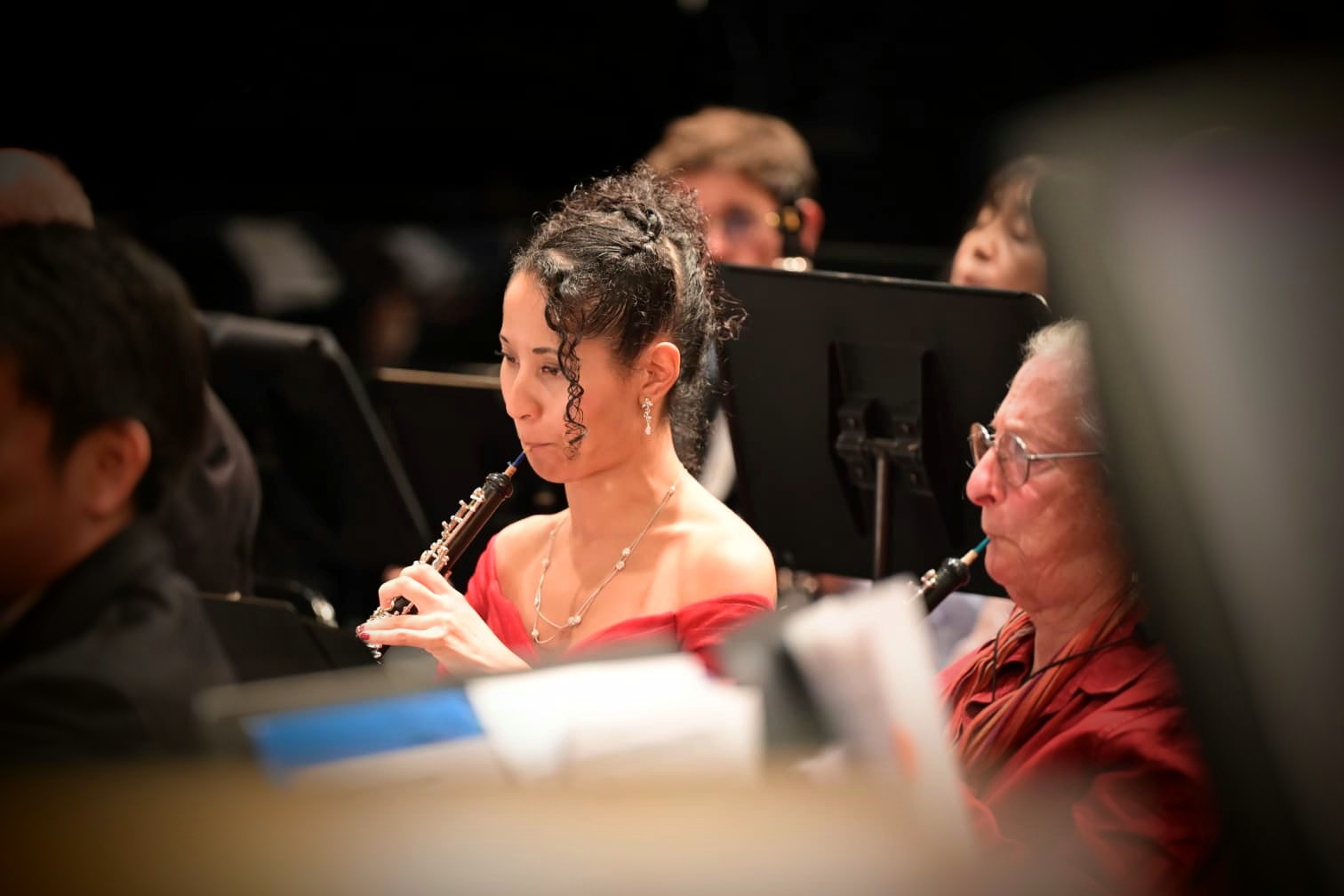
Kayana Jean-Philippe: The serious business of an amateur oboist
When it comes to the oboe, Kayana Jean-Philippe is what you might call a serious amateur – someone who pursues her passion at a high level, but does not make a living at it. One of her most consistent musical outlets has been the United Nations Symphony Orchestra, which she joined 10 years ago and is principal oboist. Another musical outlet is ACMP, which she said has connected her with new people and new musical opportunities.Read More ↗
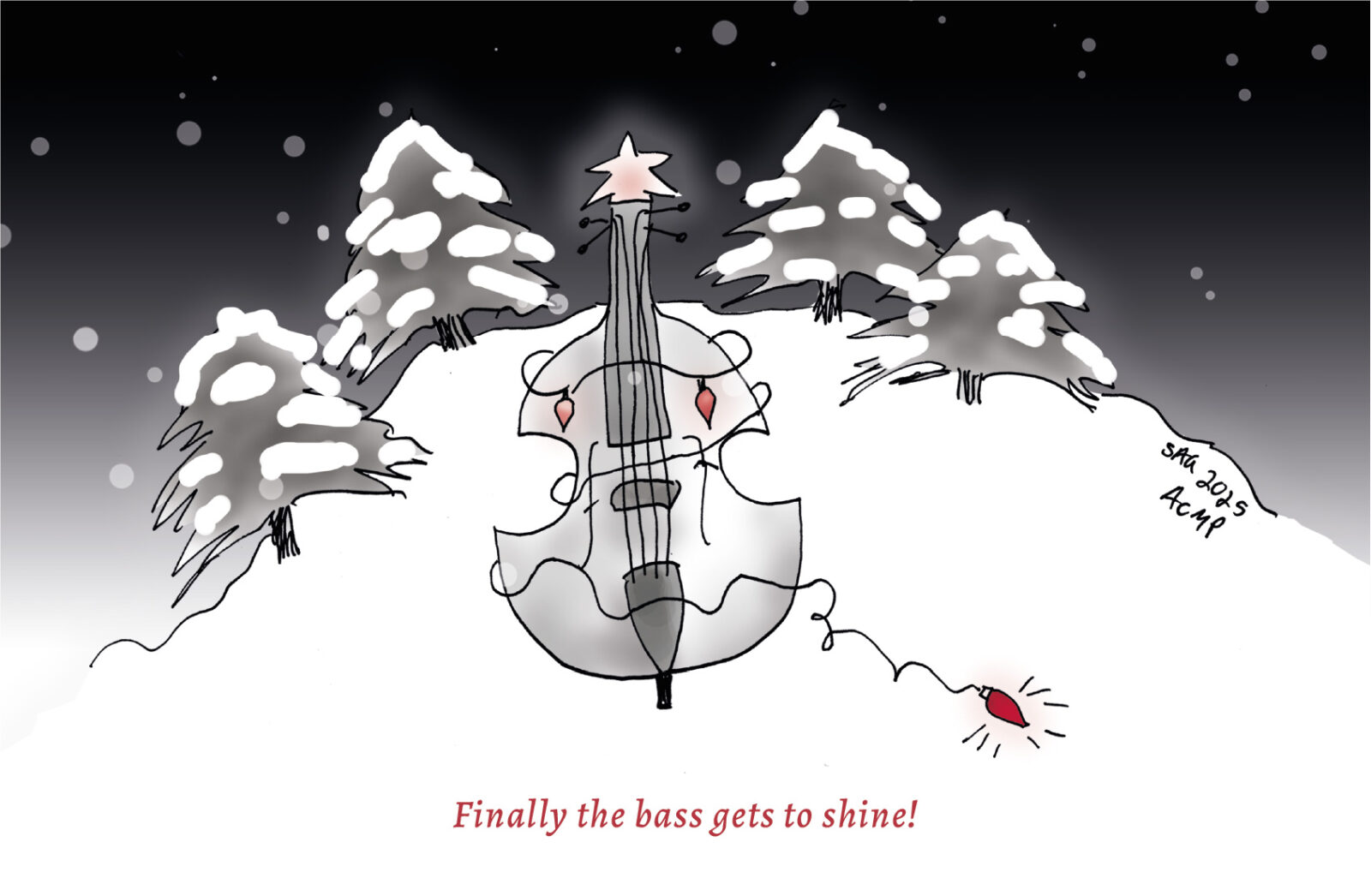
Announcing the 2025 Holiday Caption Contest Winners!
ACMP's 4th annual Holiday Caption Contest was a success, with 69 captions from 41 ACMP members. This year's winners are Valerie Matthews, Peggy Reynolds, and Matthew Greenbaum. Congratulations to everyone who came up with so many wonderful captions for this year's cartoon!Read More ↗
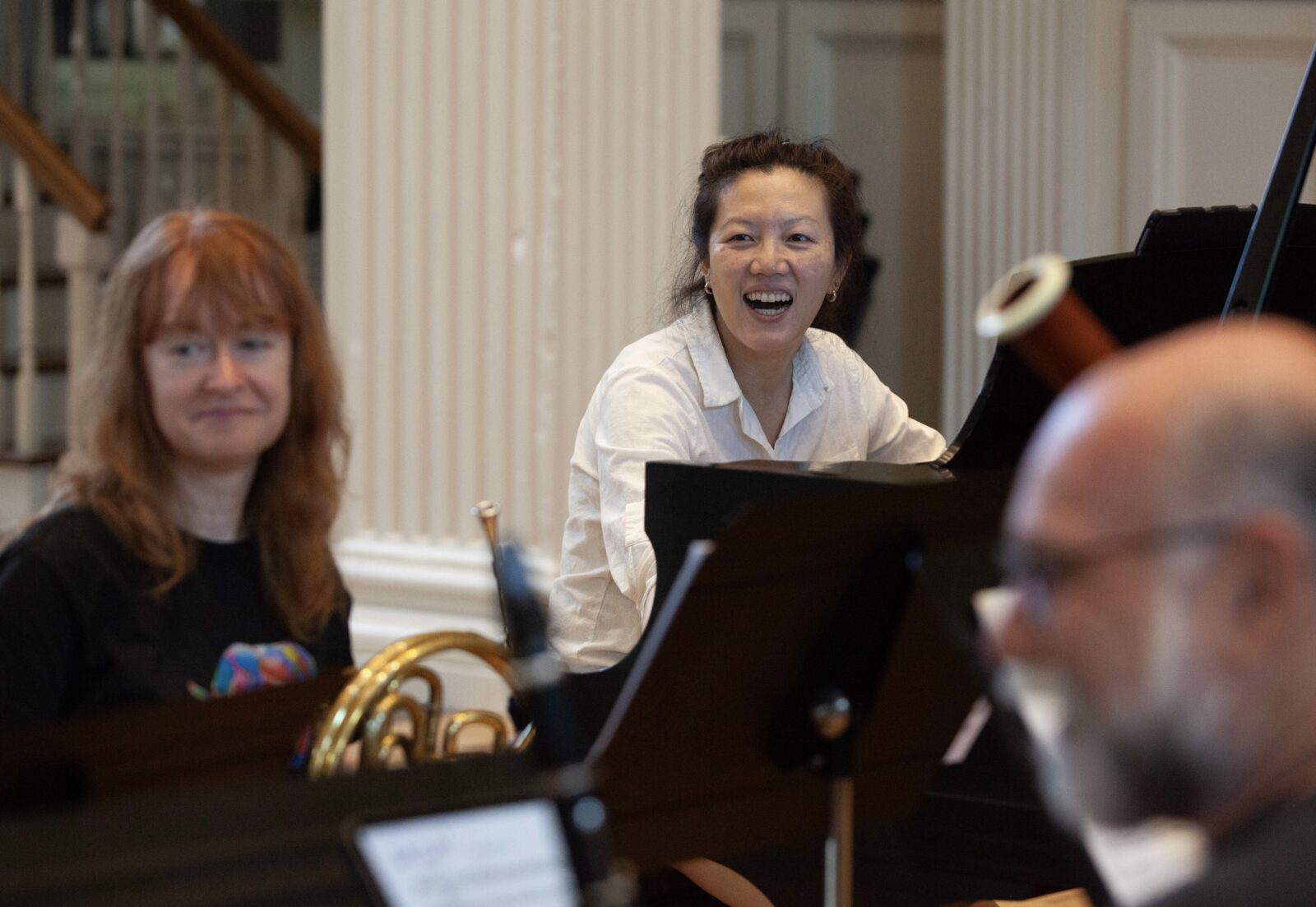
Announcing ACMP’s 2026 Workshop/Community Music Grantees
ACMP is proud to announce its 2026 Chamber Music Workshop and Community Music grantees. This year we awarded $168,000 in grants to 73 chamber music workshops and semester- or year-long programs in 10 countries, and 31 US states. (Photo by Claire Stefani.)Read More ↗

Mystery Donor Reveal: An interview with Louise K. Smith
An anonymous member of ACMP recently spearheaded a fundraising initiative for ACMP in the two week lead-up to Giving Tuesday, offering a $25 gift for each donation received from November 18, 2025 through Giving Tuesday (December 2.) This mystery donor just revealed her identity: Thank you, Louise K. Smith! I asked Louise some questions about her background as a pianist, involvement with ACMP over the years, and about her recent matching grant idea.Read More ↗

A Bridge from West to East – The Chamber Music of Reena Esmail
After a recent visit to her father's hometown in India, ACMP member pianist Sonya Subbayya Sutton returned to the United States with a renewed curiosity about her Indian culture and music. This led her to explore the music of Indian American composer Reena Esmail. Read about Reena's own voyage of discovery in Indian music and check out links to her scores and recordings.Read More ↗
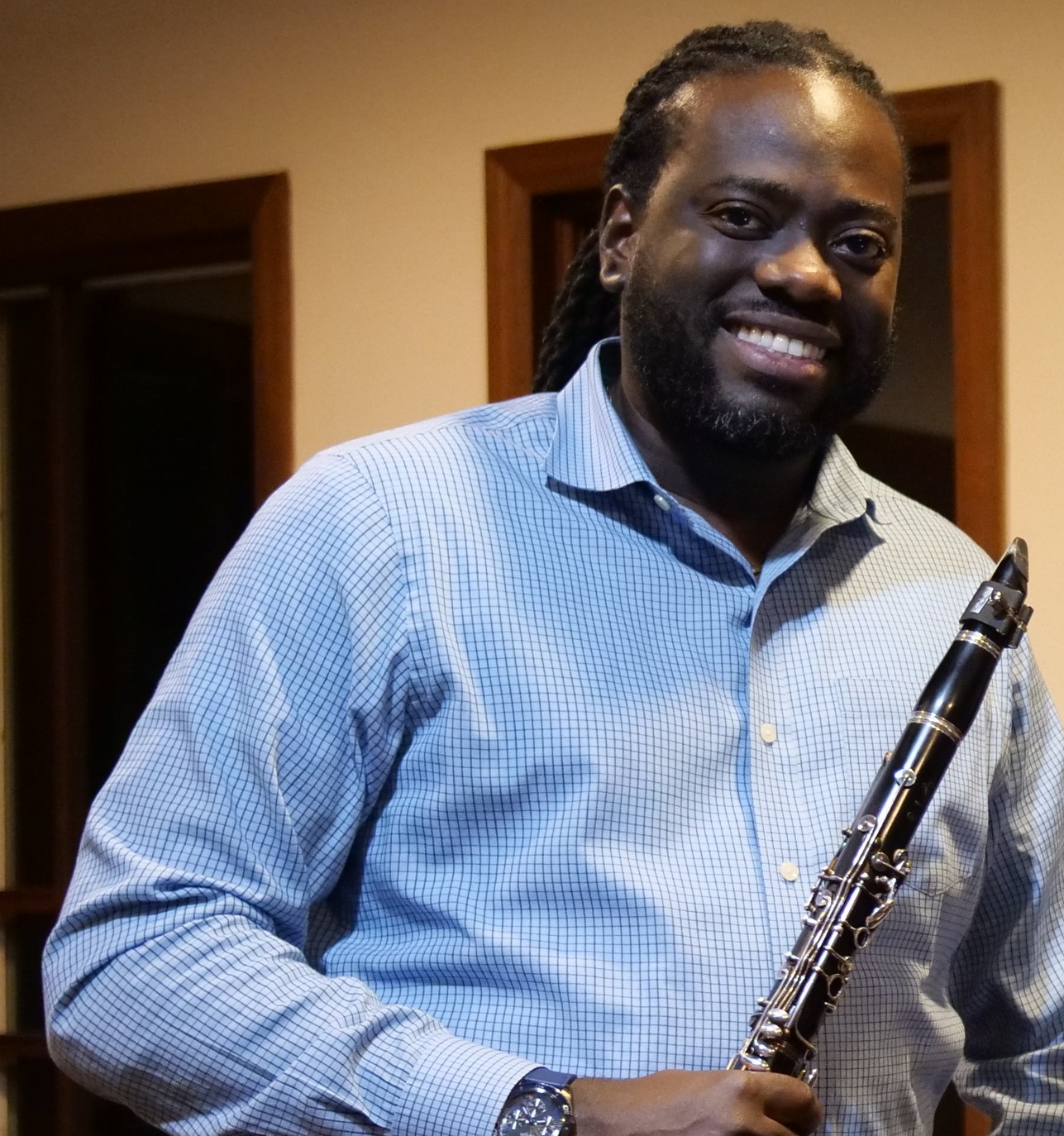
ACMP Member of the Month: Kwame Lewis
Kwame Lewis is not your typical accountant. Born and raised in Trinidad, he emigrated to the United States in 2003 at the age of 23 and set about building his career. Along the way, he lived in the Washington area for an extended period, got married, had two boys who are now 5 and 3 years old, and since 2019 has lived with his family in Melrose, Mass., near Boston. One constant through his journey, though, has been his love of the clarinet and chamber music.Read More ↗
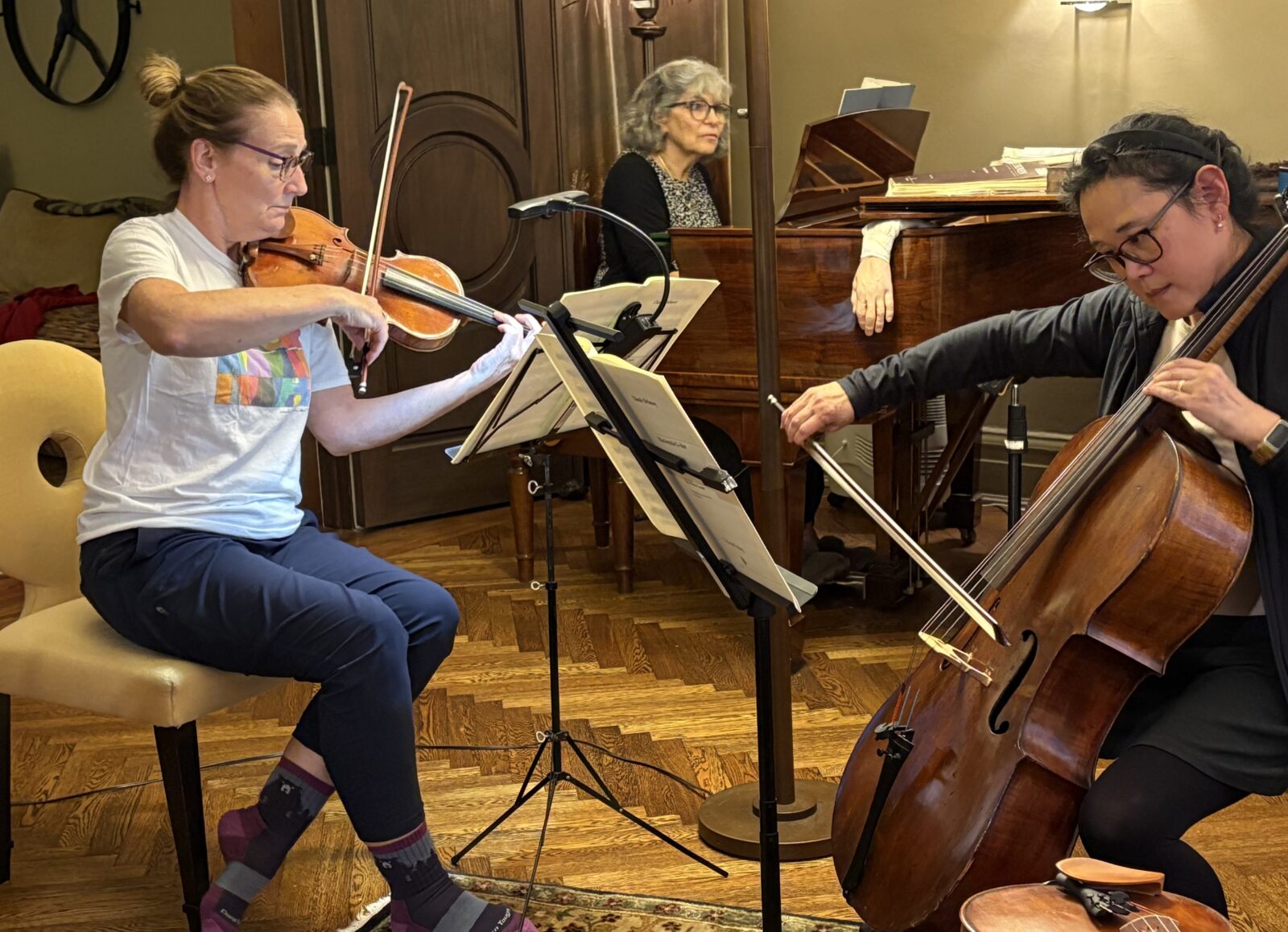
Chamber music for a cause: amateur musicians support Music for Food
ACMP member pianist and violist Arlene Hajinlian is as active a chamber music organizer as she is in sharing her time and space for social causes. This Thanksgiving holiday weekend she came up with a way for adult amateur chamber musicians to have a lot of fun while raising money to support New Yorkers in need: three consecutive chamber music parties as a benefit for Broadway Community through Music for Food.Read More ↗
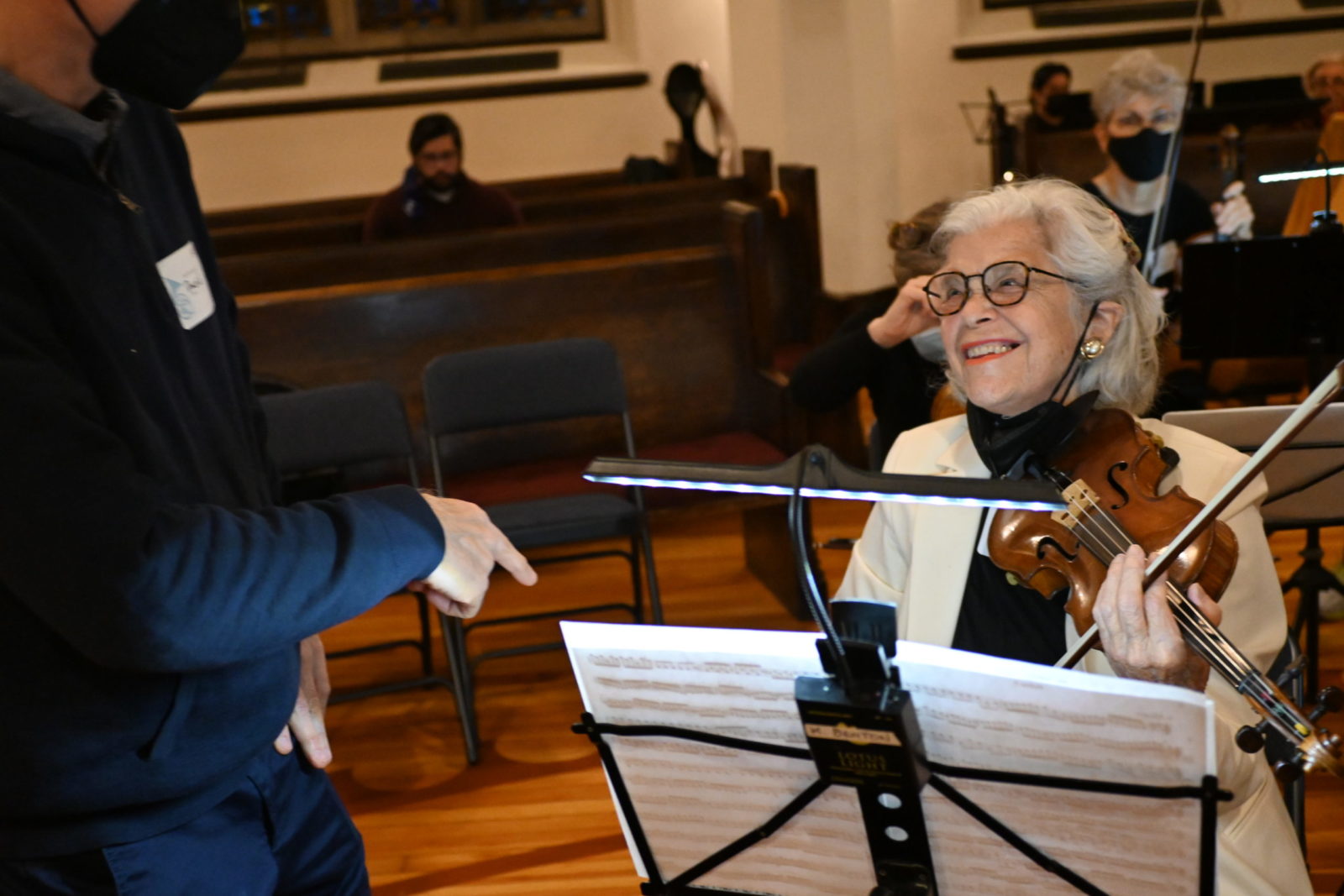
Remembering Kate “Kitty” Bigelow Benton (March 29, 1935 – November 2, 2025)
ACMP mourns the loss of Kitty Benton (1935-2025), a former board member, board secretary and longtime editor of the ACMP newsletter. Read about Kitty's life and watch a video of Kitty telling her favorite stories about ACMP in June 2021.Read More ↗
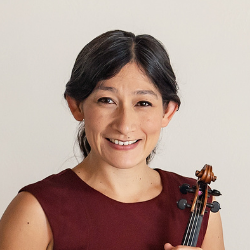
New Video – Meet The Artist: Harumi Rhodes
ACMP Executive Director Stephanie Griffin hosts a lively Zoom conversation with violinist Harumi Rhodes about her musical upbringing and career with the world-renowned Takács Quartet.Read More ↗
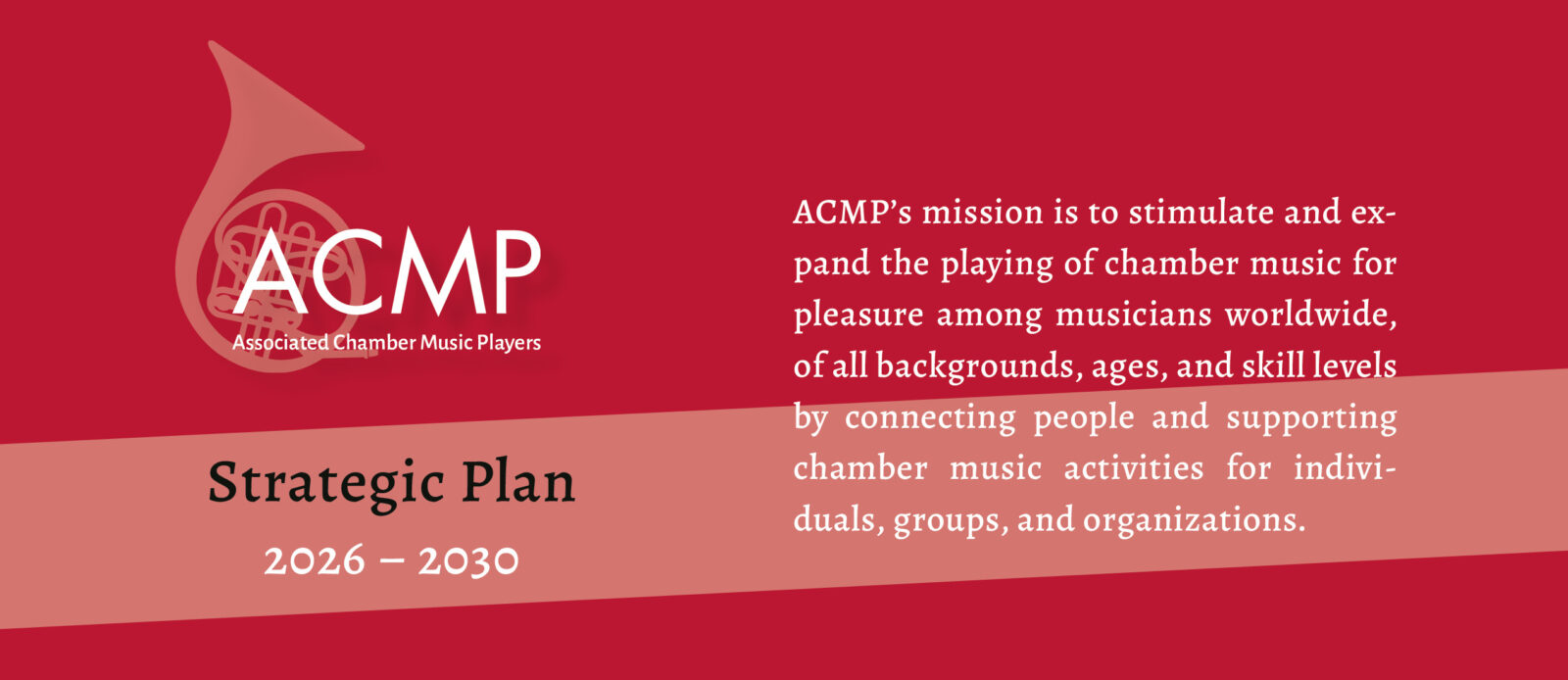
ACMP Strategic Plan for 2030
For the past several years, ACMP’s membership has grown dramatically, as has the popularity of its programs. Building on this momentum, ACMP’s Board and Executive Director completed a strategic plan to chart a course for the organization for the next five years. ACMP’s Board and Executive Director developed a new vision for the organization and a plan to strengthen member services, grants, operations, and finances to advance ACMP’s mission by 2030 and beyond.Read More ↗

Drab, Inconspicuous, and Quiet No More
Washington, D.C.area pianist and choral conductor Sonya Subbayya Sutton is a passionate advocate of the work of women composers. Read about some of her favorite women composers and discover new chamber repertoire from her list.Read More ↗
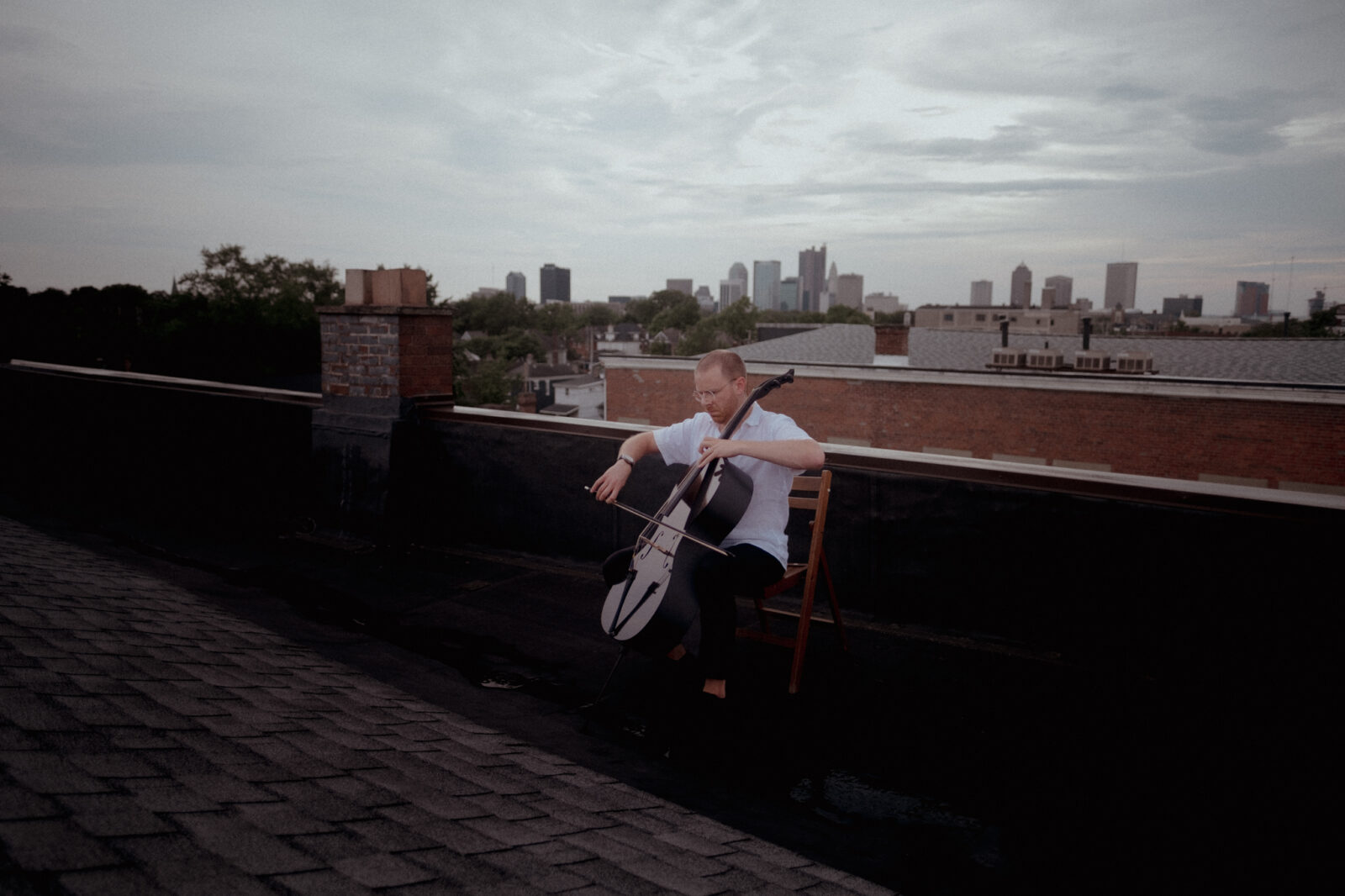
Andrew Brush: An amateur cellist with a global reach
After ACMP’s modest beginnings nearly 80 years ago, ACMP has grown to have a global membership, and perhaps nobody embodies this boundary crossing more than Andrew Brush. With his cello in tow, he splits his time between his home in Columbus, Ohio, and Buenos Aires, with visits to Europe and Istanbul, where his wife is from. Along the way, he has developed diverse musical interests, with influences ranging from Argentina to Mali. We caught up with Andrew recently after he had returned to Columbus, where he serves as a member of the ACMP North American Outreach Council.Read More ↗
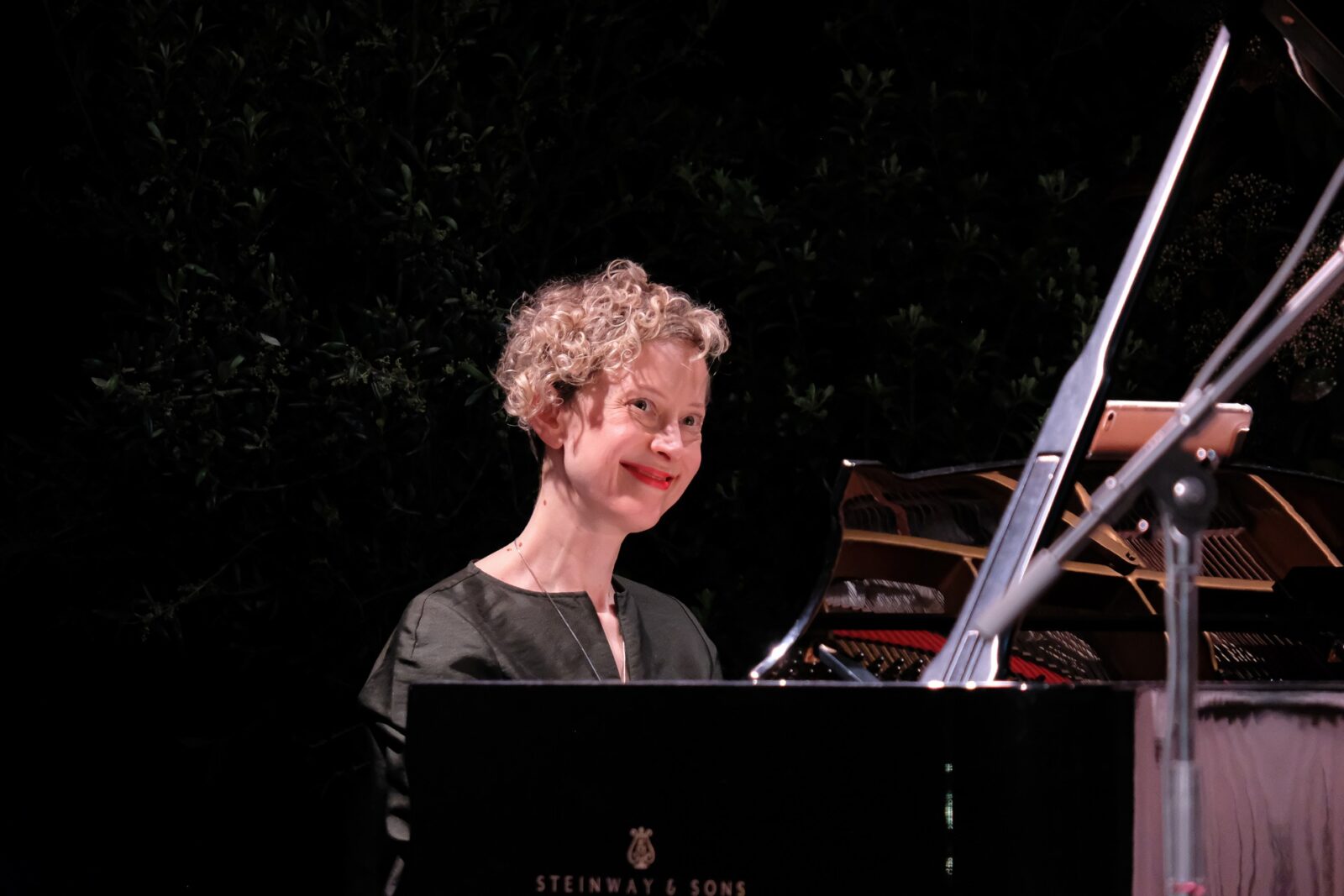
Befriending Performance Anxiety: simple tips for success
Performance anxiety is a universal experience, a survival mechanism that is hard-wired. Many of us react with shaky hands, lack of focus, shallow and fast breathing, rapid heart rate, and even feeling queasy. This is all perfectly natural - our protective sympathetic nervous system comes online to save us from danger, real or imaginary! Join Dr. Xenia Pestova Bennett for a free online webinar about managing performance anxiety on Thursday, October 30th at 6pm UK/Ireland time.Read More ↗
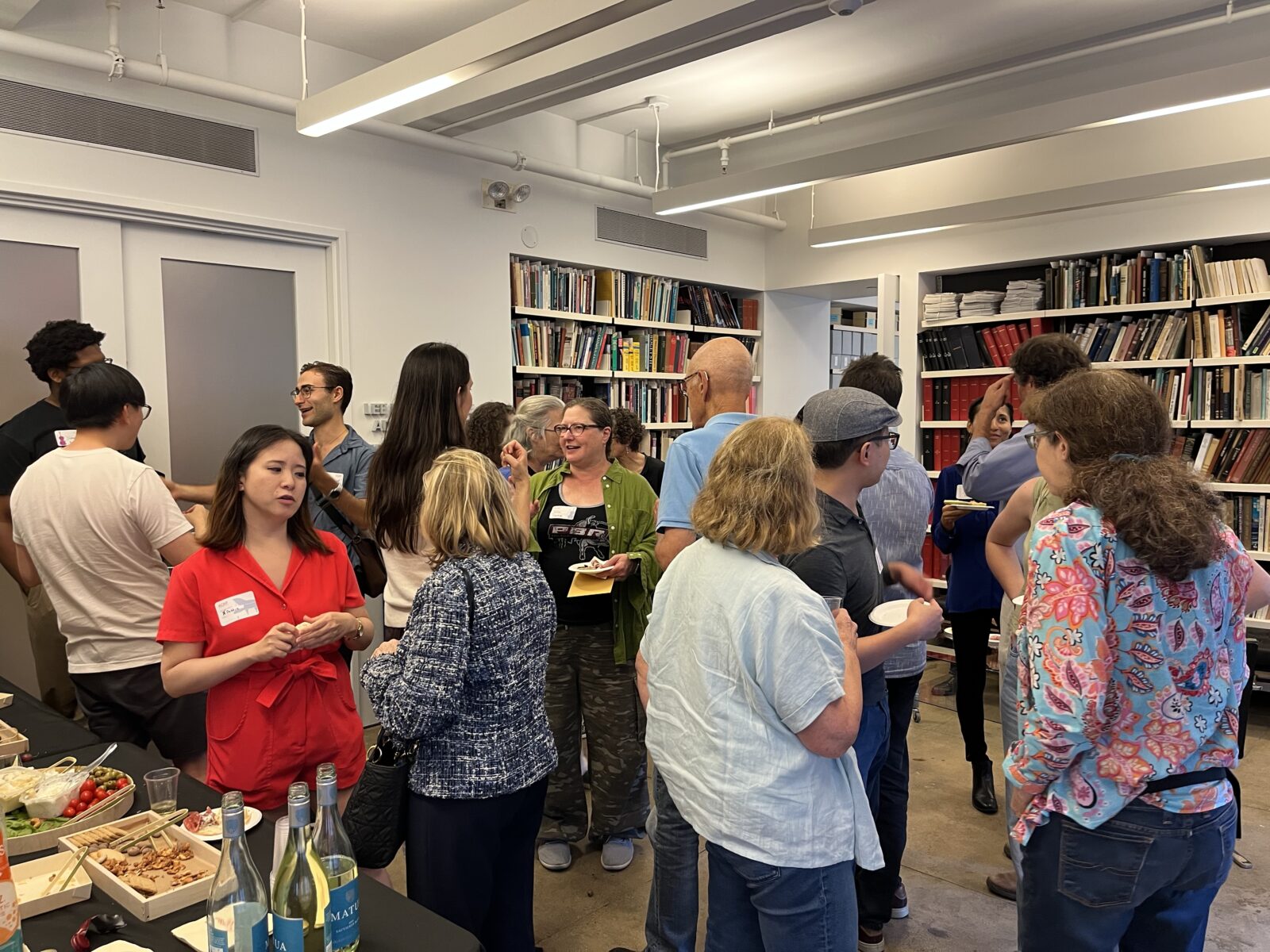
The Great American Play-In: ACMP and ACO
On Saturday, September 13 ACMP embarked on its first collaboration with the American Composers Orchestra (ACO). Together we organized a Play-In focused entirely on music by twentieth and twenty-first century American composers. Over the course of three hours, forty-five musicians discovered sixteen pieces or sets of pieces by a wide range of American composers, spanning from 1896 through 2025.Read More ↗
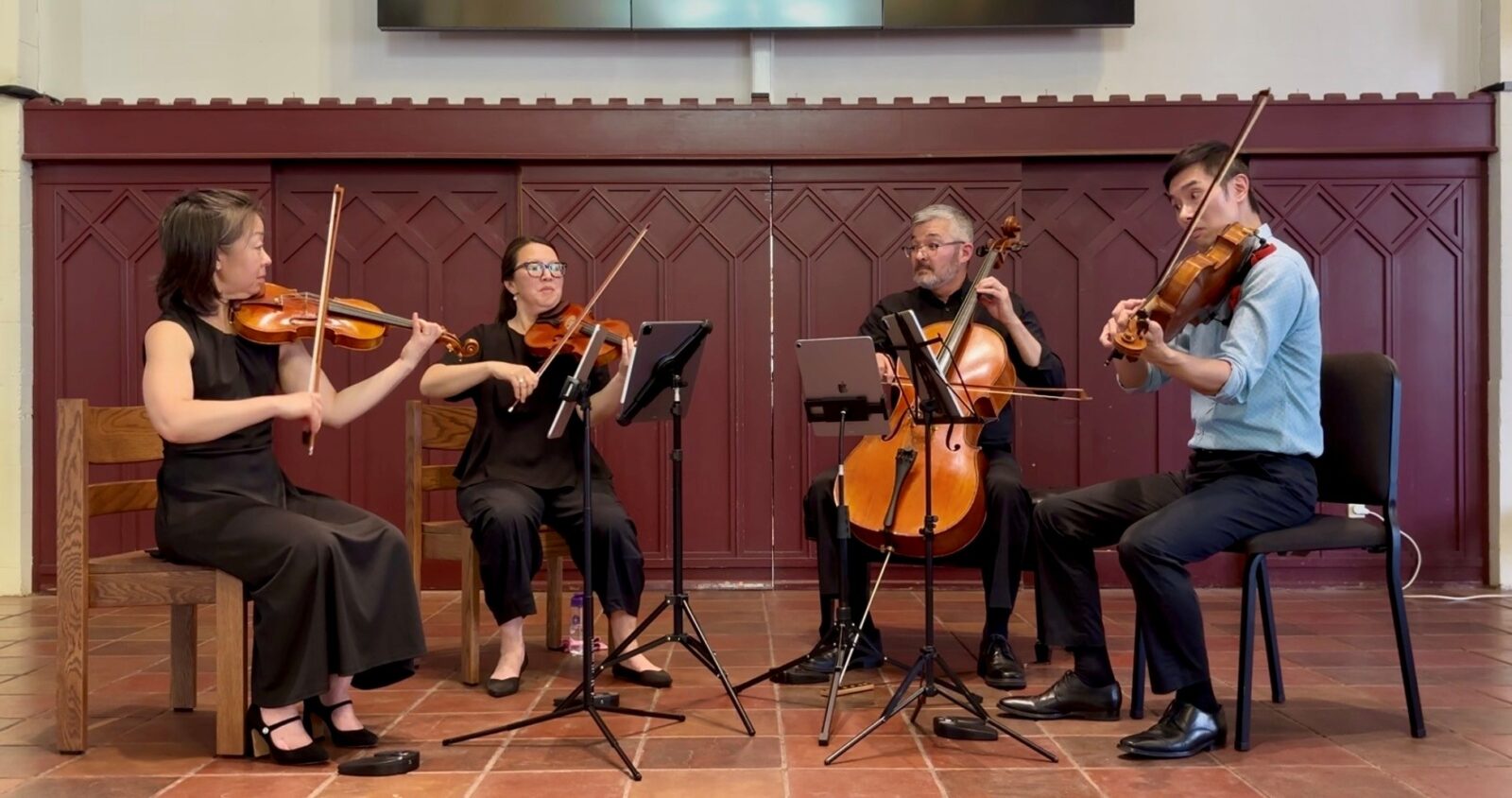
Just Play Concert: Exploring New Voices and Old Masters with the Tarka String Quartet
Thanks to a “Just Play” grant from ACMP, the Tarka String Quartet—Sue Soong and Julie Park on violin, Kevin Jim on viola, and Angus Davol on cello—recently shared a program in San Diego that reflected their passions: exploring new voices by women composers alongside the great works of the quartet tradition.Read More ↗
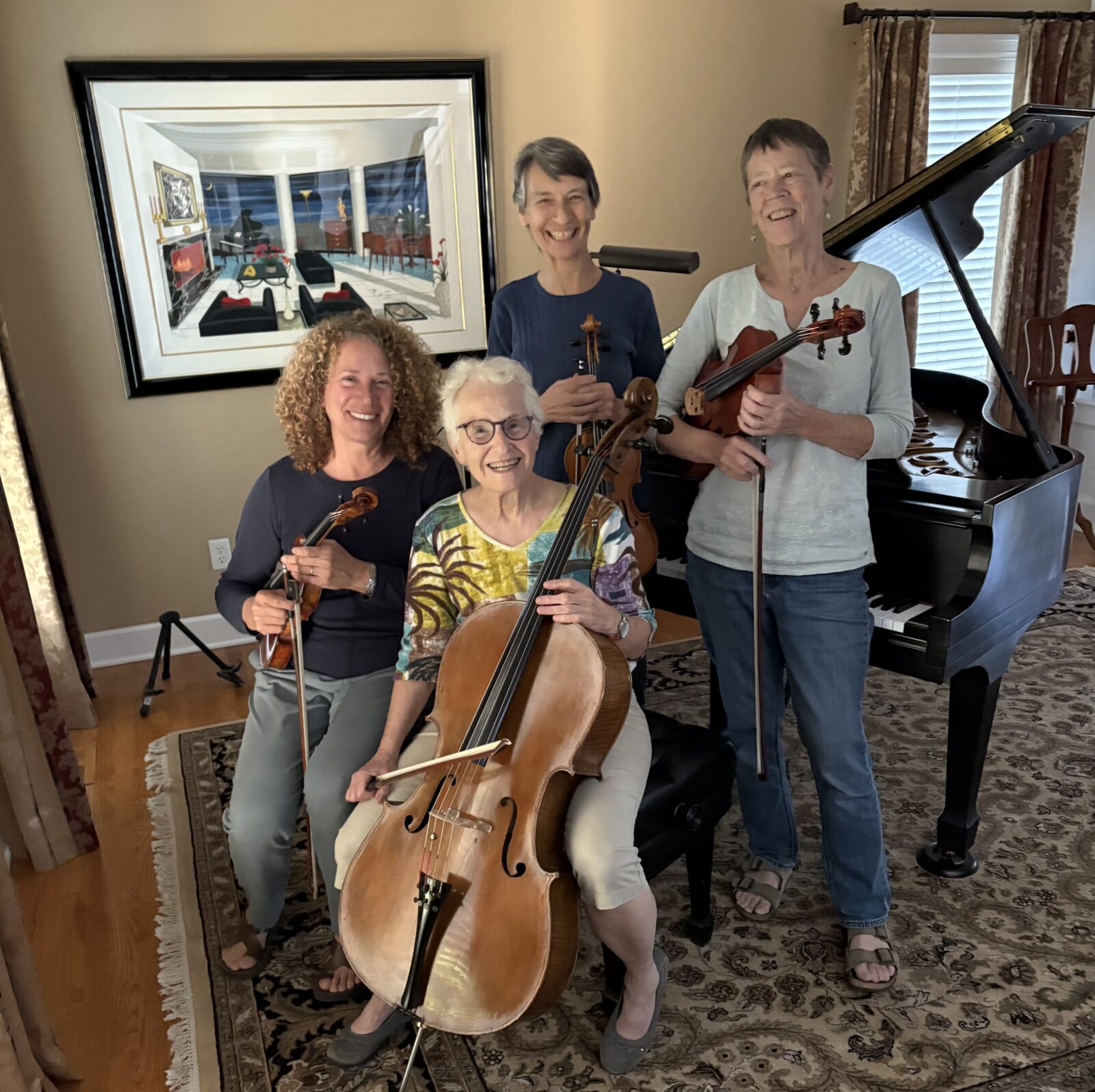
ACMP Members of the Month – October 2025
Playing in a regular string quartet is kind of like having a regular foursome in golf – everyone needs to be of roughly similar ability, and they also need to get along. When those two dynamics come together, the result can be a lasting chamber group that brings enduring friendships. Such is the case with our Members of the Month for October – Ruth Sklarsky, Barbara McIver, Ellen Henry and Kathy Lewis, residents of the Rochester, N.Y., area who have played in a string quartet for more than a decade. They got together and collectively answered a few questions about their musical journey.Read More ↗
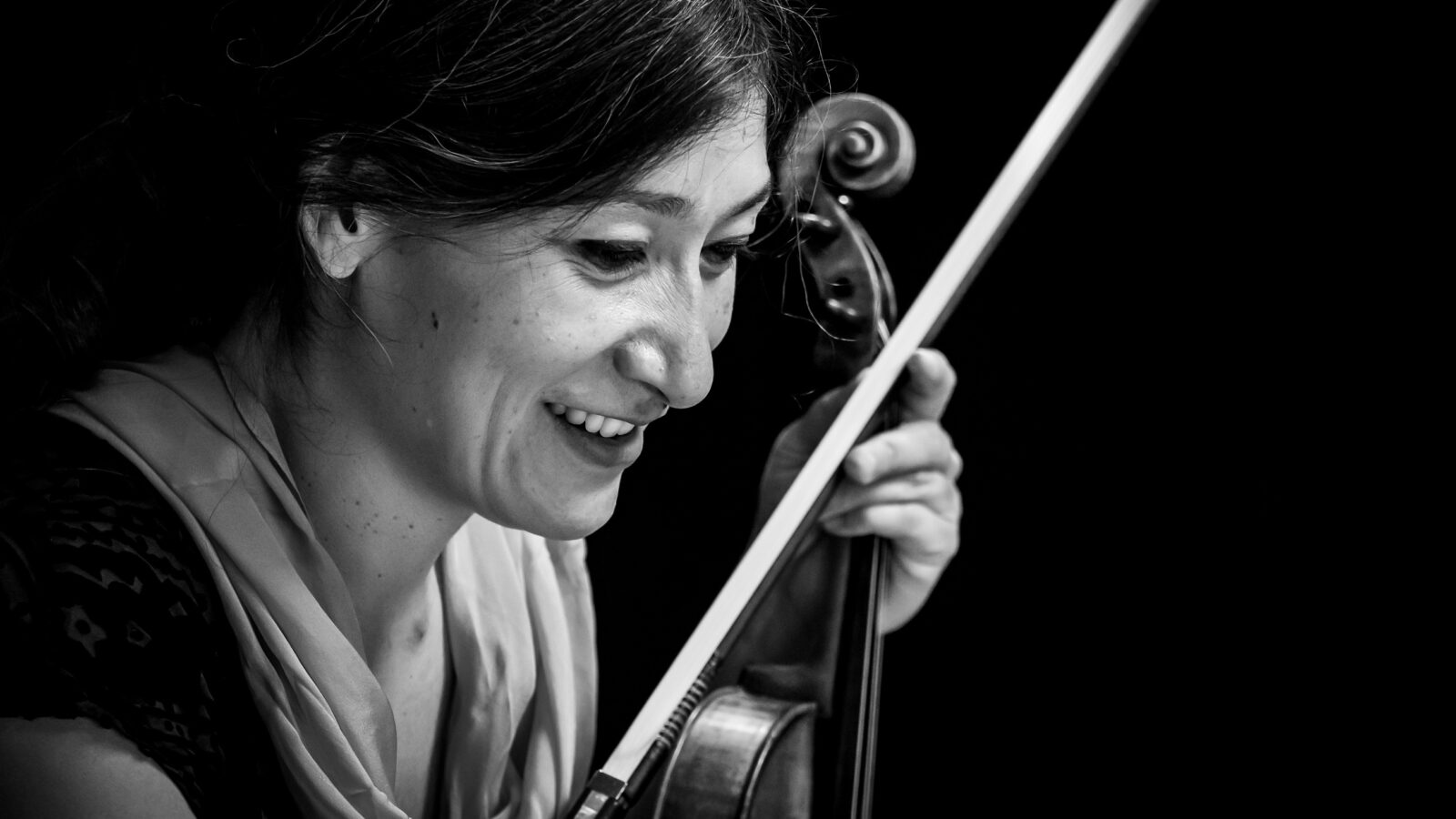
ACMP Event: Meet Harumi Rhodes
Join ACMP’s Executive Director Stephanie Griffin on Saturday, November 1 at 2pm Eastern time for a lively discussion and Q and A with violinist Harumi Rhodes. Harumi is the daughter of two famous chamber musicians: Stephanie’s former viola teacher, Samuel Rhodes (Juilliard Quartet) and violinist Hiroko Yajima (Mannes Trio.) Find out more about Harumi’s early life in that celebrated chamber music milieu, and about her journey as she established her own career as the second violinist of the world-renowned Takács Quartet.Read More ↗